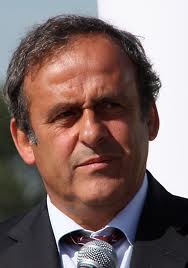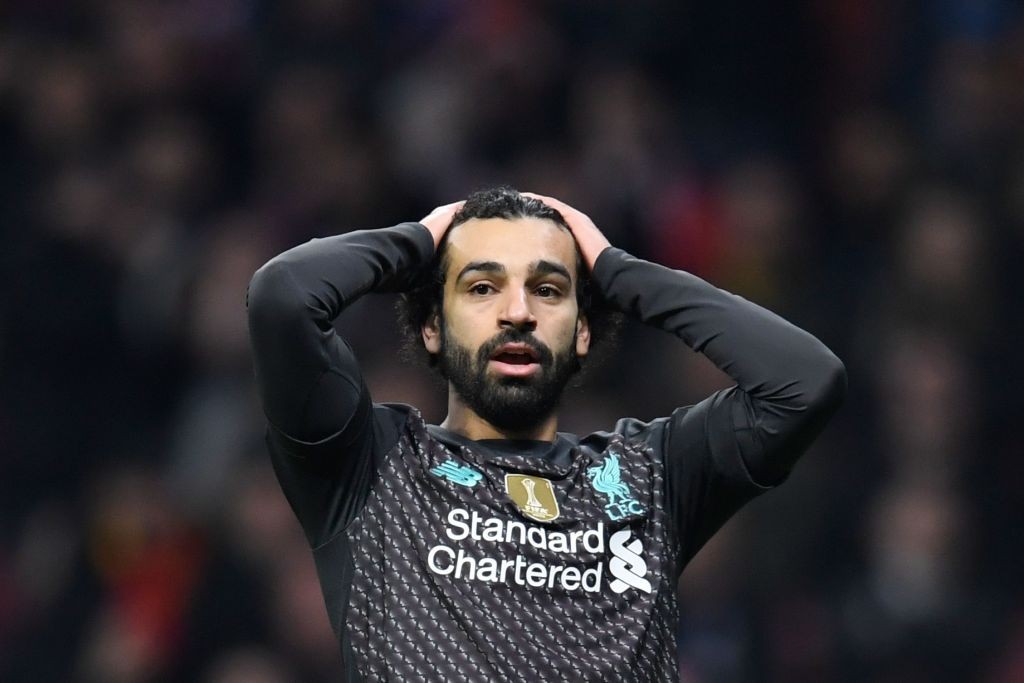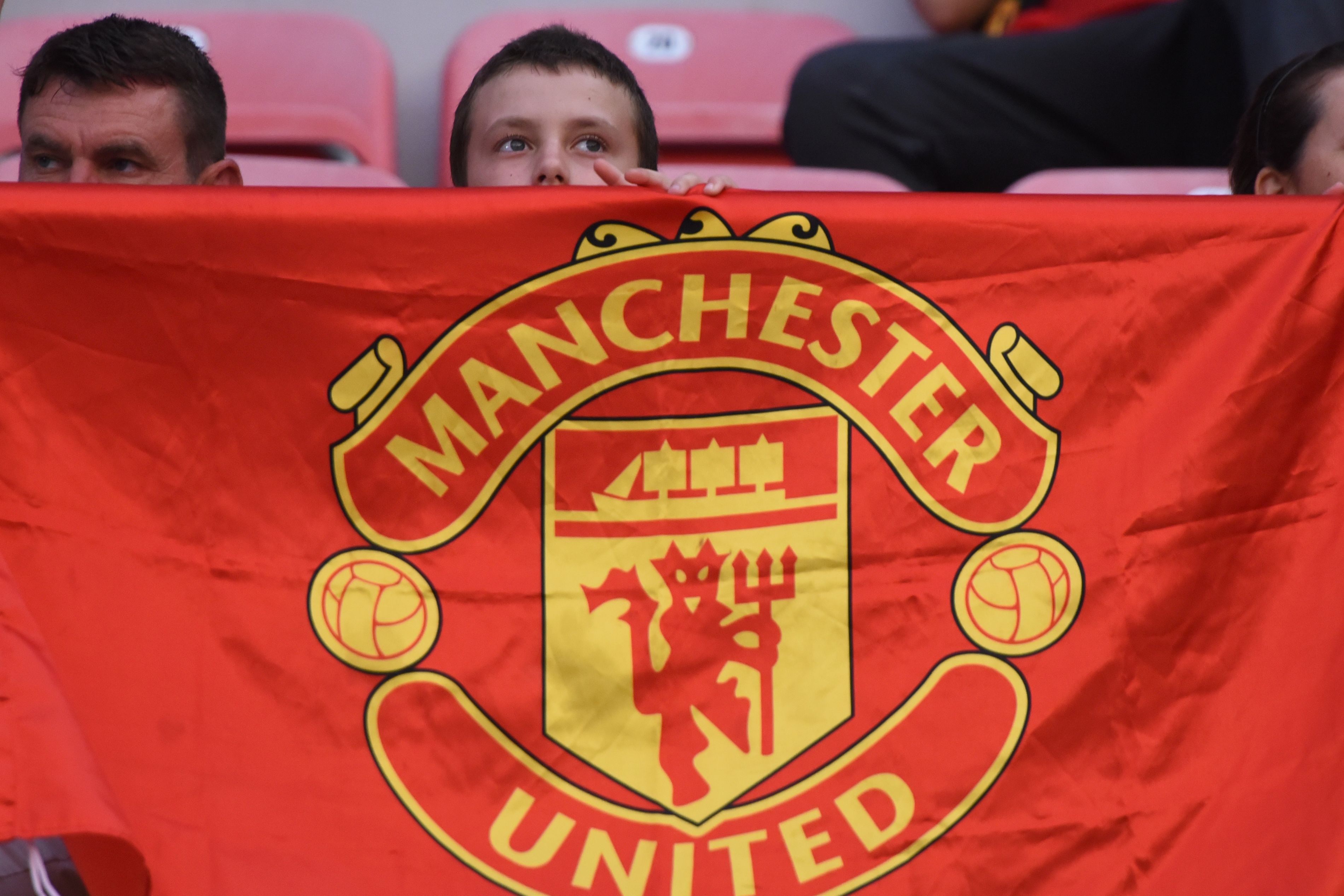They say “Never bite off more than you can chew”. Well, whoever “they” are, this statement has surely stirred quite a plot in Michel Platini’s head and has, since then, regressed into UEFA’s Executive Committee. In September 2009, the UEFA ExCo decided that it was necessary to formulate a well-defined set of regulations, in consultation with clubs who vie to be crowned Champions in Europe, so that it can curb the financial anarchy that seems to have had unprecedented repercussions upon the various leagues and clubs across the continent. The result- a 90 page dossier that very clearly lays down every minuscule detail to be taken care of by a club before contesting to enter a European club competition. The financial fair play concept was one of the eleven key values that president Platini submitted at the 2009 UEFA congress in Copenhagen.
How well has he masterminded the new regime?
So what is the financial anarchy?
One may begin to rationalize the conception of the financial fair play rules due to the numbers game. It has been claimed by UEFA that the continued rise in losses over recent seasons began to set a trend by outweighing the rise in profits. This coupled with the global economic meltdown in the recent past compelled footballing bodies to approach UEFA with the need for guidance and stability for the sake of sustenance in the game.
UEFA’s 2009 benchmarking report gave out ghastly revelations. 56% of Europe’s top division clubs reported net losses in 2009, as compared to 47% the previous year. This clearly outlines the immediate impact of the global economic recession, which was triggered in 2008. Club financing became a big problem and many clubs faced various issues such as delayed payments, increasing interest, losing sponsorship deals, TV rights and so on. This is still an ongoing problem. Consequences of such a scenario are nothing short of dire as it can lead to insolvency/bankruptcy, the club going into administration (like Portsmouth) or simply, the club operating at really low finances which incidentally will have an impact on transfers and hence squad quality.
UEFA’s figures showed that top-flight clubs across 53 countries increased their revenue by 4.8% to €11.7bn during the year 2009 despite the impact of the recession. But costs rose by twice as much as the increase in revenue, 9.3%, to result in total losses of €1.2bn – more than twice the previous record, with more than half of the 733 clubs audited [56%] reporting a net loss.
Leagues in just four countries were able to break even – Germany, Austria, Belgium and Sweden. At 249 clubs, more than 70% of turnover was spent on players’ wages and at 73 of those, more than 100% of all the club’s income went on player wages. The latter encompasses the top divisions of countries such as England, France, and Italy.
So as the numbers suggest, there is clearly a mismanagement of funds generated and funds available. This seems to be the primary reason that coerced the top echelon of European football’s governing body in framing the rules.
What are the Financial Fair Play Rules all about?
The crux of it all is that these rules are directed towards protecting the longevity of club football in the top flight. The idea is to get clubs to break even or balance their accounts with every passing season starting from the 2011/12 season. No club can spend more than it earns during the season. The financials of each and every club will be monitored by UEFA through the Club Financial Control Panel headed by former Belgian Prime Minister Jean-Luc Dehaene. The panel comprises of top financial experts who will carry out the club audits and do the needful. The panel will also look in club licenses and compliance of the applicants with the UEFA standards.
The enforcement of the financial fair play rules begins in the 2011/12 season, a phased implementation spread across 3 years. The “breaking even” requirement will be applied to financial statements starting from the 2011/12 campaign. However, there is also a decreasing cap on the permissible losses for a club. For the 2011/12 and 2012/13 seasons, clubs can spill over by 45 million euros (37.4 million pounds) provided the sum within this bracket is balanced by a cash influx from the club owner. Over the following three seasons, the permitted losses will again be set at €45m over the entire period. That will then drop to €30m over three seasons, then €15m, then zero.
This move calls for some really hard planning to be done by club owners who are serious about bagging a place in the European competitions. Manchester City have already reported a 121 million pound loss since Sheikh Mansour took over in 2008. They have suffered the largest loss in the history of English football and these rules couldn’t have come at a much worse time for the club. They now must look at alternatives to balance their account books or else all the money spent in order to rise to the European stage will be, well, money down the drain. Tottenham are also looking to boost their chances by bidding for the Olympic stadium so they can move to a larger capacity arena. This will spur ticket sales further and hence bring them in compliance with UEFA’s rules.
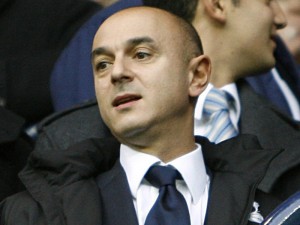
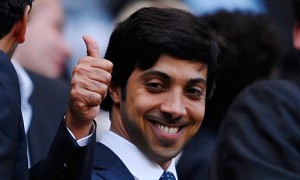
Daniel Levy and Shiekh Mansour have quite a bit of planning to do.
The Financial Fair Play rules also look to address the following avenues with respect to any club and football in general:
-Investments in infrastructure and youth academies.
-Making sure clubs settle their liabilities and debts within the time constraints.
-Control the handling of salaries and transfer fees in order to avoid inflation.
The 1:3 ratio may or may not be a good thing
It is too soon to speculate on the impact of these rules. They are bound to help the clubs with a not-so-massive financial clout but with the bigger clubs, one can only place a question mark on the kind of effect they will impinge. However, there are three zones where the impact of these rules will be felt the most:
1)Transfers:
While the calculations are going to appear opaque to the average Joe, one of the immediate and obvious impact areas of the Financial Fair Play rules are transfers. With UEFA now placing a bracket on a club’s expenses, any club bidding high for a quality player must be certain that they really need the player in the squad rather than making him just a marquee signing, who doesn’t fit into the manager’s tactics. Player wages and agent commissions are all going to be monitored by UEFA and this makes it very easy to breach the doctrine.
It has been reported by UEFA that several deals go through unregistered agents and with so many players and agents spread across Europe, it is hard to lay a finger every time a deal seems to be raising eyebrows. FIFA has now launched a new multi-million pound transfer tracking system that will assist UEFA officials in analysing a deal, no matter how small or big, to check if the parties involved have followed the processes as per norm.
2)Player Wages:
The implementation of the rules is going to mark a shift in who has the final word when it comes to player wages. Up till now, players and agents across the continent ruled the roost and could quote the wages they wished for if they were dissatisfied with their current dough. However, they are now going to have very little say in this matter since the club must abide by the guidelines on the cap on player wages.
Consequently, this breaks the chain wherein the player hands in a transfer request or issues a come-get-me plea to other clubs because no other club, unless it is desperate, will bid for such a player. This further diminishes the power of an agent. So the only way the player is going to earn more is if the club earns more. The owners are bound to be unwilling to shell out money from their pockets for this cause because if they do it for one player, there is a good chance the others will slowly demand for a pay rise too. Of course, such a scenario will not arise for a team consisting of players who love playing for the club and for whom, money is not on the top of the list.
The bright side of this? Young talent from lesser known clubs need not be sold and such clubs, by holding onto their talent pool, will stand a stronger chance of rising to the European stage.
3)TV Rights:
At first, TV rights don’t seem to have a connection but upon deeper introspection, revenues through TV broadcasting might get a hit. This is partly in parallel with the first zone of impact, transfers. With lack of player movement across countries and hence leagues, television contracts will not really be on the rise and there is a chance of a certain league of losing out on prospective audience. More than England and probably to some extent Spain and Italy, leagues from other countries will feel the impact faster.
On the other hand, by keeping young prospects at a club, chances are that heads will turn towards such leagues where the rules will foster a healthier competition, resulting in the rise of these clubs.
Success or Failure?
The Financial Fair Play rules have not gathered the backing of all the clubs and leagues across Europe as yet. It is hard for one to exactly predict the success of these rules but having understood the intent of UEFA – to bring in all the clubs on a level playing field before they actually compete on the field is really a topic of debate. UEFA’s intrusion (if we may call it that) in club matters basically shuns out the power of the local governing bodies for every league in every country. What is the role of bodies like the RFEF (Real Federación Española de Fútbol), the English FA, the DFB and the like? Their diminishing responsibilities will only come back as an insult to their presence. In all probability, there is no reason to believe that these local bodies couldn’t have come up with their own set of rules and regulations to handle spiraling club finances and debts. By exercising its power further, UEFA and Michel Platini might have just made a few more enemies in Europe.
Platini might be considered a very shrewd and astute person but the question with regard to Financial Fair Play is – is he more inclined towards exercising a control over the millions and millions spent by rich and famous club owners on their respective clubs or is he really gunning for more competition on the European platform by helping mediocre clubs rise through these rules? One angle makes him a hero, one makes him a villain. Only time will tell us which one of these will he manifest into.
All said and done, all these rules makes one wonder. When did football become this complex? Isn’t it just about a game played amongst two teams in good spirit? Isn’t it simply, the most beautiful game on the planet?

